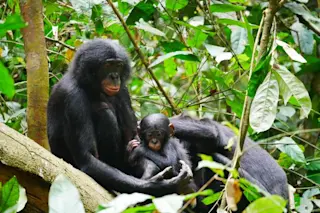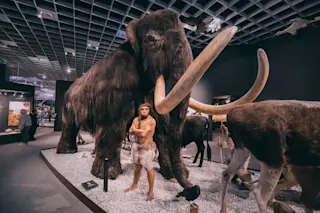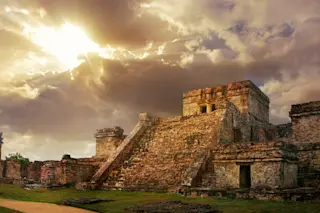
Greta Scacchi, cousin-lover
There has been some discussion in the comments why the posts on inbreeding are getting so much attention. I think this is a milder form of the same sort of curiosity about why young males have a fascination with pornography: we are obsessed with sex. This is not an arbitrary fascination, nor is it a loss of innocence which may have been avoided. Sex is our raison d'etre as sexual organisms. Evolutionary psychology gets a bad reputation for positing adaptive explanations for everything under the sun, from dancing to migraines. But, if there is anything which is the target of adaptive constraint and selective pressures, it is the suite of traits which relate to sex and mating in a direction fashion. It is sometimes stated that sex is about power, but the bigger reality is that power is about sex
. But reducing human behavior purely to one explanatory framework is too reductive even for me. An individualist framework where singular males and females operate as evolutionary versions of rational H. economicus, always optimizing fitness through subterfuge and inducement, leaves something to be desired in characterizing the true rich tapestry of human behavior. And this tapestry is not arbitrary; rather, its general shape and topography is anchored by particular innate parameters. For example, the story of Tristan and Iseult
seems clearly to be rooted in a common human archetype, an evoked aspect of human complex societies where cultural necessities can work at cross-purposes with individual biological dispositions. Humans evolved as a species in relatively small-scale groups
. Though I am skeptical of the idea that pre-Neolithic societies were atomized down to the level of only small bands, I do think that the rise of agriculture resulted in the emergence of new cultural forms and complexities. Hunter-gatherers clearly have their own taboos and social constrictions, but civilizations have transformed this segment of the cultural toolkit into massive and baroque scaffolds which constrict our impulses. For thousands of years it seems likely that young women such as Deirdre
have been "given" to older men of power such as Conchobar
. There is benefit in this arrangement for all. Men of power can breed with nubile young women, transforming their status into reproductive value. And, as Chinese history and the life of Anne Boleyn
tells us there is much gain for these women and the families of these women who subordinate natural impulse to rational calculation. Yet still, impulses do quite often break free and negate rational calculation (see: Catherine Howard
). I have stated before that the customs and traditions which many Westerners perceive to be "conservative," a fixation on female honor, elaborated patriarchal lineages, complex familial and social hierarchy, etc., are in fact innovations of the age of agriculture. They were cultural inventions designed to manage and control humanity in an organized fashion, as a scattering of souls congealed into vast rivers of people. The past few centuries, and in particular the past few decades, have seen a collapse of much of the old institutional order. But hunter-gatherers did not live by impulse alone, as is clear in the results of the communes of the 1960s and 1970s. Love is never free, there are always consequences, both biological and psychological. Not only did hunter-gatherers have their own cultural mores, but we do not live in the world of hunter-gatherers. It may be that particular norms and customs at tension with our evolved intuitions are still necessary to bind us together as societies, where the many may cooperate to facilitate the flourishing of all. Where does incest come into all of this? As I have noted earlier the Westermarck effect
illustrates that extremely close first order incestuous relationships (father-daughter, sister-brother) are not favored in a deep evolutionary sense. And yet such incest can be favored and propagated by culture! The incest between near relations among ancient Egypt's elite is well known, but apparently the practice also spread to the peasantry via emulation. I am willing to bet that sex with your brother or sister is not as satisfying as sex with someone with whom you are not related (though I would appreciate no anecdata in this domain!), but clearly cultural forces can even favor this arrangement. The major issue comes to relations between relatives at some remove. I do not think there is nearly a strong case for aversion to relations with first cousins beyond what might be covered by the Westermarck effect due to extended family cohabitation. And unlike first order incestuous relationships the biological abnormalities of the offspring of first cousins are sharply mitigated. They are at worst comparable to the risks which older parents may be foisting upon their children by conceiving them later. But, I think that cousin marriage as a norm should still be discouraged, just as polygamy as a norm should be discouraged. From the perspective of an elite male polygamy is arguably the more natural arrangement! But man does not live on an island. While individual instances of cousin marriage and polygamy can allow for flourishing, as a whole societies where these practices are normative and ubiquitous suck. When I say they suck, I mean that they suck from the Western liberal perspective where a level of egalitarian individual access to self-actualization and flourishing is prized. When considering social arrangements I believe it is critical to focus less on individual first principles, and look to a more holistic set of metrics which value the organic community, from which individuals often derive such explicit and implicit psychic gratification. I suspect that one can argue that the cognitive toolkit we have today is very well equipped for life in small bands. Perhaps the closest analog to this are the cliques and circle of friends which young people develop. There is no need for institutional formality or a detailed set of prescriptions of behavior. Natural disposition and impulse can operate nearly perfectly on this scale. But we do not live merely in our own small social bubbles, we are embedded in a larger society. And for that there may need to be a cultivation of traits, tendencies, and dispositions, which are at cross-purposes which our selfish natures. To have a real discussion about what the proper balance between our moral intuitions and the necessary social engineering of a complex post-industrial society is we need to reinsert communal values into the discussion. Not just what are the aims of you as an individual maximizing your own happiness. Not just what rights and responsibilities you as an individual have. But what is the vision for the society as a whole, and what are its goals, and what equilibrium would perpetuate the greatest good for the greatest number.
Image credit:Georges Biard













